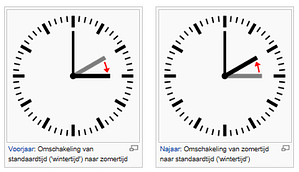

If the EU were to abolish Daylight Saving Time, it would need approval of the majority of EU member states and EU Parliament members. The resolution asked the European Commission to review the costs and benefits of Daylight Saving Time. Although the resolution it voted on was non-binding, the majority reflected a growing dissatisfaction with a system that has been used by the US, Canada, most of Europe, and regions in Asia, Africa, and South America for decades. It does not store any personal data.Earlier this week the European Parliament voted 384 to 153 to review whether Daylight Saving Time is actually worth it. The cookie is set by the GDPR Cookie Consent plugin and is used to store whether or not user has consented to the use of cookies. The cookie is used to store the user consent for the cookies in the category "Performance". This cookie is set by GDPR Cookie Consent plugin. The cookies is used to store the user consent for the cookies in the category "Necessary". The cookie is used to store the user consent for the cookies in the category "Other. The cookie is set by GDPR cookie consent to record the user consent for the cookies in the category "Functional". The cookie is used to store the user consent for the cookies in the category "Analytics". These cookies ensure basic functionalities and security features of the website, anonymously. Necessary cookies are absolutely essential for the website to function properly. Tagged #clocks #Summer timer #turning the clock forward #winter time Turning the clock back

The current summer time arrangements directive requires EU countries to switch to summer time on the last Sunday of March and back to standard time on the last Sunday of October. The EU first unified the summer time arrangements in 1980, in order to ensure a harmonised approach to time switching within the single market, as until then, national summer time practices and schedules were diverging. Responding to citizens’ initiatives, in February 2018, Parliament called on the Commission to assess the seasonal clock change and, if necessary, present a proposal for the directive to be revised.įollowing the assessment, which received 4.6 million responses, of which 84% were in favour of ending the clock changes, the Commission tabled the plan which will now need to be agreed upon between the Parliament and EU ministers. The text adopted is the Parliament’s position for negotiations with EU ministers on the final wording of the rules.

If the Commission finds that the foreseen time arrangements could significantly, and permanently, hamper the proper functioning of the single market, it may submit a proposal to postpone the date of application of the directive by a maximum of 12 months, says the adopted text. MEPs also want EU countries and the Commission to coordinate the decisions to ensure that the application of summer time in some countries and winter time in others does not disrupt the internal market. MEPs backed the Commission proposal to end seasonal time changes, but voted to postpone the date from 2019 to 2021. Those that prefer to keep their standard (winter) time, can adjust their clocks for the final time on the last Sunday in October 2021, says the draft law approved by MEPs with 410 in favour,192 against, 51 abstentions. EU countries that decide to keep their summer time should make their final clock change on the last Sunday in March 2021.


 0 kommentar(er)
0 kommentar(er)
